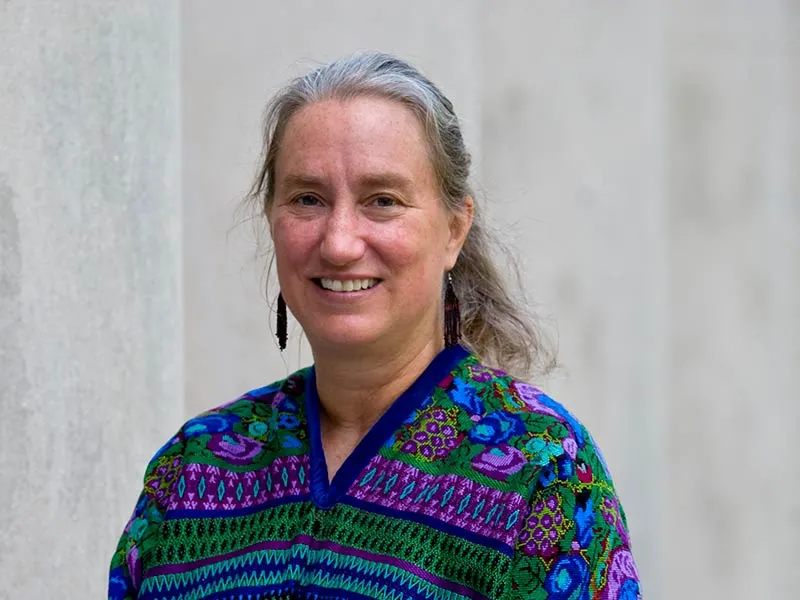
Lapuhch! This is the Tunica way of saying “It would be a good thing.” This summer Tulane students will have an opportunity to live the phrase. A new summer course entitled "Language Revitalization: the case of Tunica, Louisiana’s sleeping language" (LING 3000), will, in two intensive weeks, teach students about language death and revitalization, second language teaching, and the Tunica language, while giving them the service learning opportunity to assist tribal language coaches at the Tunica Language summer camp in Marksville, Louisiana.
Tunica is a linguistic isolate, with no known relatives. Prior to the arrival of Europeans, the Tunica lived in Mississippi, Louisiana, east Texas, and Arkansas. They controlled the lucrative salt trade from the Gulf to the interior. Currently the tribe is headquartered in Marksville, Louisiana, with affiliate bands in Houston and Chicago.
World-wide a language dies every fortnight. Sesostrie Youchigant, the last speaker of Tunica, died fifty years ago. However, his descendants have not given up on their language. Donna Pierite had a dream in which she was told that she was to be the tribal legend keeper and language bearer. Working with her son Jean-Luc and her daughter Elizabeth, Donna has been studying the written records of her language left by researchers Gatschet (working in 1898), Swanton (early 1900s) and Haas (1933-39). She and her children perform regularly at the Paragon Casino Alligator show, singing Tunica and Choctaw songs, reciting stories told by Youchigant to Haas, and explaining cultural symbols to casino guests. Donna offers mini-language-lessons to elders on Bingo nights and to all tribal members attending the monthly community meetings.
In 2010, Tunica Councilwoman Brenda Lintinger approached me to ask for help with the tribe’s efforts to re-awaken their sleeping language. Since August of 2010, a team of Tulane students has been working with me in consultation with the Pierites and Councilwoman Lintinger to develop materials to help foster language revival. One of the first steps was to develop a practical orthography for writing the language. Gatschet had written Tunica using French spelling conventions, which under-represented the sounds of the language. Swanton followed Gatschet’s lead, while Mary Haas used the International Phonetic Alphabet. The new writing system devised by the team has seven vowels and fourteen consonants. In 2011, the team’s first book was published: Hichut’una Awachihk’unanahch Fighting Eagles. This book contains two of the stories that Youchigant told Haas, the title story, Hichut’una Awachihk’unanahch, and Takohku Tayakman Deer and Turtle. An audio CD accompanies the book to model pronunciation. This book was presented to the tribe at the annual Pow-Wow. Two elders, one from the Marksville band and one from the Houston band, read the Tunica; two children read the English translation. All tribal members received copies. A second book, containing three more of Sesostrie’s stories, is in final production.
The Tulane-Tunica Working Group now hosts a Tumblr site and shares a Google Drive for collaborative work on materials in development. This year we have been working on a pedagogical grammar linked with Tunica language lessons, while refining and expanding a digital dictionary. We are also working through the Gatschet and Swanton materials, updating the orthography, analyzing the morphology, and learning more about Tunica syntax.
For the past two summers, the tribe has sponsored a Tunica Language Summer Camp. In 2011, Donna Pierite and her daughter, Elizabeth Mora Hixen, taught all the children. Children learned greetings, numbers, colors, and basic verbs. Other camp activities included crafting, learning indigenous songs, and dancing. In 2012, Brenda Lintinger and her sister joined the teaching staff, working with the youngest campers. In 2013, we hope to add Tulane students to the camp staff, aiding the Tunica teachers.
The first week of the course, June 2-6, 2014, will be on Tulane’s campus. It will cover language death and revitalization, second language teaching methods, the Tunica language, and practice teaching Tunica. The second week, June 9-13, will unfold in Marksville. Students will be hosted by the tribe, with room and board provided through the casino services. Each day students will walk the nature trail from the casino to the reservation dance grounds, where the summer camp meets, and will assist the Tunica teachers with language lessons and camp activities. As Tunica children learn their ancestral language, become familiar with native sports, such as stickball, and enjoy dances, which they might then go on to perform in Pow-wow competitions, they develop pride in their heritage and in themselves. Tulane students can help midwife this rebirth. Lapuhch! “That would be a good thing!”

